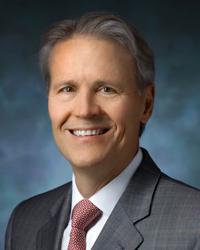Takeaway
Clinical excellence is the first kindness a physician can offer a patient. A foundational pillar of outstanding clinical care is arriving at the accurate diagnosis.

Passion in the Medical Profession | October 7, 2024 | 1 min read
By David Hellman, MD, Johns Hopkins Medicine
A 47-year-old man who had been treated three years earlier for sinusitis and pulmonary nodules from granulomatosis with polyangiitis (GPA), presented with acute onset of double vision. Examination showed that he had inability to abduct the left eye beyond the midline and bilateral papilledema. The evaluating physician concluded the patient had a left VI nerve palsy and increased intracranial pressure, classic findings for pachymenigitis from granulomatous inflammation of the meninges, a rare but well-described complication of GPA. An MRI confirmed the diagnosis, and the patient’s symptoms resolved with cyclophosphamide therapy.
This encounter pays homage to the adage that, “Sometimes the most humanistic thing a doctor can do is to know the cranial nerves.” This colorful expression captures an enduring truth: clinical competence is central to humanizing medicine.
Achieving clinical excellence includes mastering domains of medical knowledge, history taking, physical examination, procedural skills, diagnostic acumen, communication skills, and choosing diagnostic tests and therapies wisely.
In 1860 the American philosopher Ralph Waldo Emerson observed that, “Health is the first wealth,” as a reminder of the foundational role good health plays in each person’s life. Were Emerson alive today he might well note that “Clinical excellence is the first kindness a physician can offer a patient.”
This piece expresses the views solely of the author. It does not necessarily represent the views of any organization, including Johns Hopkins Medicine.

